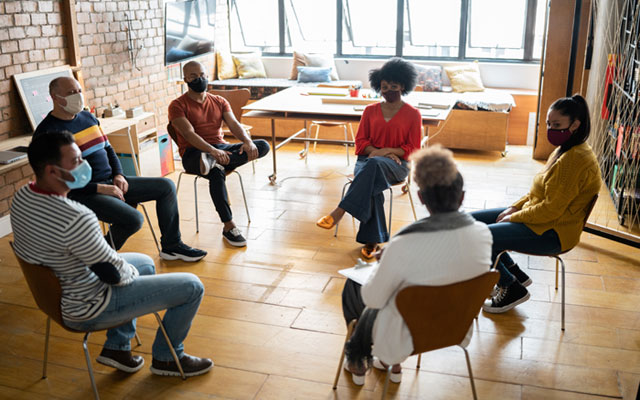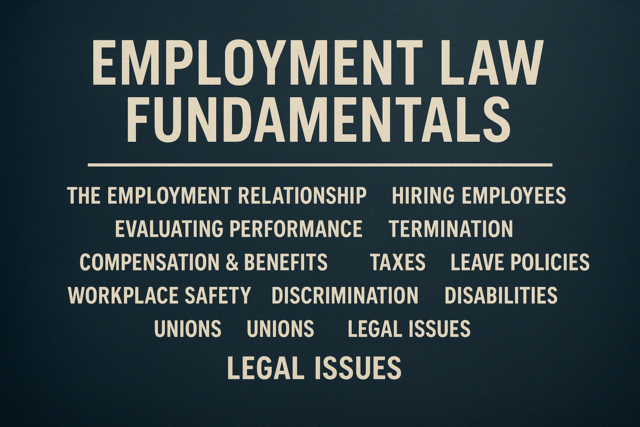A. The New Millennium and Mass Media
B. Media Education: Definition
C. Censorship and Freedom of Speech
In addition, censorship can take on a range of forms based on a host of different factors.
In some parts of the world, the governments control the media. This means that no one can broadcast or publish anything a government views as being either immoral or harmful, or that threatens the country's "stability," meaning a government's power base.
In democratic countries, we are fortunate to have what is known as "freedom of speech," where people are free to say and write whatever they wish outside of some carefully defined exceptions; for example, threatening the life of the sitting president.
D. Censorship by OmissionWant to learn more? Take an online course in Sociology.
In some cases, censorship may be construed as archaic; in other instances, it is seen as humane. Take, for example, the local evening news story of a burning building. A young boy is taken out engulfed in flames. Yes, it is caught on camera. However, the station opts not to air it. Is this censorship?
What if the reason information is omitted or withheld is to maintain someone's dignity or privacy, which is a whole other issue where the media is concerned?
E. Audiences and Advertisers
Hence, the content needs to be suited to the audience's particular tastes and comfort levels. This is where exorbitant marketing budgets come into play; the media outlet uses large sums to learn what type of person makes up its audience and what content best appeals to that audience.
Advertisers are a huge financial resource for media outlets and thus are highly valued. Because advertisers also spend great sums to appeal to customers, they must be certain that they are attaching their name and branding to a like-minded entity. Should it be learned that the host of "It's Playtime, Children'' was posing in the nude on the side, it is quite likely that the majority of the advertisers would cancel their support of the program.
Thus, a gray area exists in the media whereby publishers and producers who want to put out original, cutting-edge material have to ensure that they will be able to maintain sufficient backing.
F. The Internet's Expansive Offerings
We will take a brief look at how the Internet has literally revolutionized the world of mass media. Creating a portal where a virtually limitless number of Web sites can be added at will, the Internet has transformed the way in which people both receive and look at information.
Because of the sheer nature of the online medium, users can receive information immediately. This has created an information dissemination arena in which no other media outlet, especially print newspapers, can compete. Known as "real time," users get the details of an event as it is happening. With Real Time Streaming Protocol (RTSP), not only can users stay on top of current events, they can also communicate with colleagues as if in the same conference space.
The immediacy involved, while quite remarkable, also proves to be challenging for those who produce such forms of content. For example, consider the online component to a local news station: The station only needs to air programming at 6 p.m. and 10 p.m., but the online portal is up and running 24 hours a day.
Hence, even the way these media outlets are staffed is different from the past. Print newspaper editors need to make sure that they have the story right for just one daily edition; now Web site editors need to get the story right multiple times throughout the day, in every updated version.
The increased allure of the Internet with all its fancy imagery; available podcasts, or mini-downloadable new stories you can view later from your iPod; entertaining blogs, which are often online diaries or editorials written on topics of the writer's choosing; and message boards, has caused many to cut way back on their readership of daily newspapers, monthly magazines, and other print publications.
In turn, this has caused a host of problems for daily metropolitan newspapers, a drought of advertising revenue, plunging circulation, barren foreign bureaus, withered news pages, a torrent of pink slips, and more. Newspapers collectively in 2006 were forced to let go of 2,000 staffers.
However, there is a saying that when someone closes a door, a window opens. Perhaps that is what is happening on the Internet as, in addition to newspapers developing an online presence, an infinite number of citizen journalists, also known as citmed outlets, are popping up all over the place.
Essentially a citizen journalist site is a forum created and run by non-professional journalists for the purpose of informing the public of happenings primarily within their own local community, termed "hyper local coverage," as well as the nation and throughout the world.
A recent J-Lab report entitled "Citizen Media: Fad or the Future of News" found that the majority of citizen media ventures were put together on a shoestring budget and were not conceived of for the purpose of making money. In fact, 52 percent reported they did not need to make money to continue and 82 percent said they planned to continue their site indefinitely.
"Citizen sites are developing as new forms of bridge media, linking traditional news with forms of civic participation," said J-Lab director Jan Schaffer, author of the report, which was funded by a grant from the Ford Foundation.
Further, in the report, respondents described their sites as serving such primary functions as providing local news and information not found elsewhere on the Web, building connections to the community, and helping the local media to improve.
The forms of impact citizen sites have on communities include the following:
|
- grassroots journalism;
- networked journalism;
- open source journalism;
- participatory journalism;
- hyper-local journalism;
- bottom-up journalism;
- stand-alone journalism;
- distributed journalism.
G. Alternative Media Forums
In line with Good Samaritan and education ideals, other media forums found online that encourage the sharing of information include:
- YouTube.com: an emerging site known for its willingness to globally circulate uploaded footage.
- IndyMedia.org: a site on which activists share photos and videos with other activists.
- MySpace.com: a meeting portal for the twenty-something set, where you can meet up and chat with other like-minded people and swap stories and commentary.
- HuffingtonPost.com: considered a political group blog led by Arianna Huffington.
- Comment is Free (guardian.co.uk/commentisfree): the United Kingdom's answer to the Huffington Post.
|
Note: There are also subscription-based RSS feeds that provide you with links to your requested topic of information on a continual basis.
|
With all this concentrated focus on sharing of information and relaying of real-life happenings, it made sense then that Time magazine's honored "Person of the Year" for 2006 was none other than "You."
H. Mass Media and Education: Summation
With any form of change, there is usually both some good and some bad. It is unfortunate to see traditional media forums like newspapers scrounging to stay afloat. Yet, it is inspiring to see all of the creative forces that are putting their talents to use in such beneficial community ways as are citizen journalists.
Some of the problems, however, that are bound to arise are issues with regard to accuracy, privacy, and appropriateness of content.
It certainly is a new era in which individuals have free range as to the information that is put out for the world to see, if only they would learn to exercise some discretion and judgment where educational portals and outlets for children are concerned.
Eventually, effective media controls will come into play, prohibiting children and others surfing on the Internet access to select sites containing uncomfortable or inappropriate images or content. Currently, there are parental safeguards in place, yet as the Internet is such an unregulated arena, it is impossible to ensure complete immunity from materials seen as being offensive.
However, if Web programmers can put a camera on the moon, they surely can learn to put a firewall around adult-oriented sites.






























